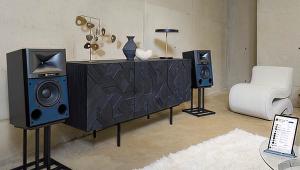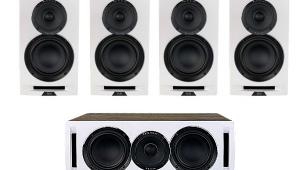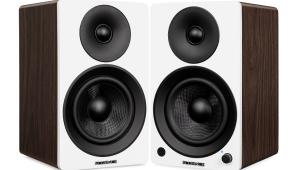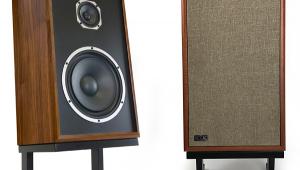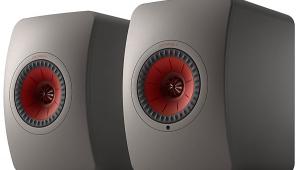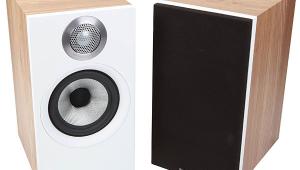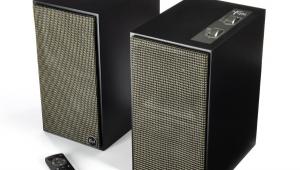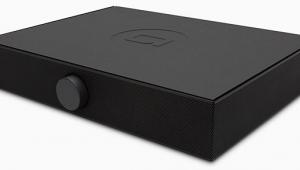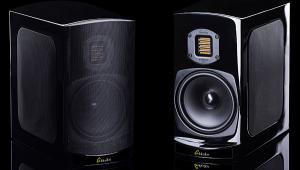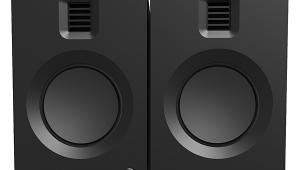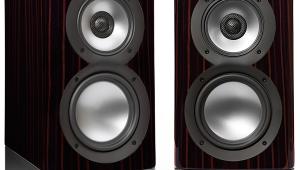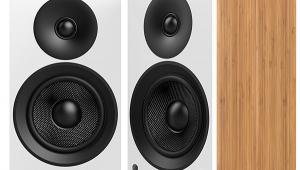Review: Paradigm Millenia CT Compact Audio System Page 2
2.1 vs. the soundbar
It just so happened that I had had several soundbars in my listening room for testing for a couple of weeks before I received the Millenia CT. I’d gotten used to the soundbar sound, and I was amazed by the difference in performance when I switched to the 2.1 system.
Voices often sound unnatural through soundbars, because a typical soundbar’s horizontal driver layout causes the midwoofers and tweeters to interfere with each other, cancelling certain frequencies and boosting others. The problem is made worse by the primitive crossovers used in most soundbars.
With the Millenia CT’s satellites, this problem doesn’t exist. The close spacing of the drivers and the well-designed crossover gives them excellent dispersion and exceptionally clear and natural midrange. Watching the DVD of Star Trek Generations, I was struck by how good the dialogue sounded — no matter whether it was coming from the women in the Enterprise crew, the children in Captain Picard’s sort-of-dream sequence, or the deep growl of Lieutenant Worf. I did notice a little extra emphasis in the mid- to upper treble that made some voices sound subtly lispy, but the midrange and lower treble were far better than I expected from a system at this price.
I was also struck by how big and enveloping the sound was. That’s in part because of the satellites’ broad dispersion, and in part just because the speakers were spaced about 8 feet apart, much wider than they’d be in a soundbar. Soundbars have to use surround-sound virtualization technology like SRS to get such a big sound, but it’s never as convincing as the real thing.
The subwoofer is more than adequate to fill out the sound from the satellites, even if it’s nowhere near as awesome as the MilleniaSub. Its output seems focused on delivering maximum punch around 60 to 80 Hz. For example, on my favorite bass test — the starship flyover and explosion that begins Star Wars, Episode II: Attack of the Clones — I got the impact of the explosion but not the rumble.
I noticed much the same sonic characteristics when I listened to “I.O.U.” from the Replacements’ Pleased to Meet Me. Paul Westerberg’s voice sounded — well, as smooth as it can, I suppose. Chris Mars’ drums were crisply imaged, the snare hits sounding like they were coming off a real drum head (although, of course, nowhere near as loud). The guitars and cymbals seemed to stretch all the way across the front of my listening room. I could have gone for a little more oomph in the kick drum and the higher notes of the bass guitar, but I’d need a larger and more expensive sub to get that.
The Millenia CT plays good and loud, too. It’s quite listenable even at full volume, which delivered 97 dBC to my listening chair when I played Mötley Crüe’s “Kickstart My Heart.”
Interestingly, the high-frequency emphasis I heard in movies wasn’t so evident when I played music. I noticed it fleetingly in a few voices, but almost all the singers I listened to sounded surprisingly natural for being played back on a $699 complete system. The only singer who really got too lispy for my taste was Steve Earle, whose vocals on The Mountain became rough and spitty — even while the bluegrass instruments in the Del McCoury Band backing him sounded immaculate and precisely imaged.
- Log in or register to post comments
